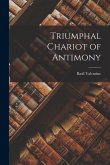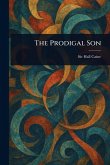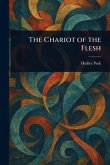Elizabeth Stuart Phelps's "A Chariot of Fire" explores the profound impact of sudden loss on a 19th-century family. This poignant work of psychological fiction delves into the complexities of grief and family dynamics following a tragic traffic accident. The narrative examines the emotional landscape of those left behind, capturing the raw and enduring power of love and loss. A compelling exploration of the human condition, "A Chariot of Fire" resonates with its timeless portrayal of grief and resilience. Phelps masterfully crafts a story that invites reflection on the fragility of life and the strength of familial bonds in the face of overwhelming sorrow. Experience this classic work of literary fiction, carefully restored for a new readership. This work has been selected by scholars as being culturally important, and is part of the knowledge base of civilization as we know it. This work is in the public domain in the United States of America, and possibly other nations. Within the United States, you may freely copy and distribute this work, as no entity (individual or corporate) has a copyright on the body of the work. Scholars believe, and we concur, that this work is important enough to be preserved, reproduced, and made generally available to the public. We appreciate your support of the preservation process, and thank you for being an important part of keeping this knowledge alive and relevant.
Bitte wählen Sie Ihr Anliegen aus.
Rechnungen
Retourenschein anfordern
Bestellstatus
Storno









